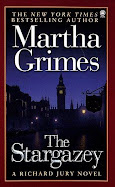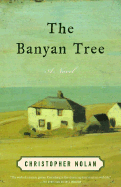'Everyone called him Pop Eye'.
The opening line of the book is as memorable as the opening line of 'Great Expectations' ('My father's family name being Pirrip...'), which is quoted in this book. The whole book is one of those memorable books, the story, the words, the settings , the characters staying with you for a long time after reading it.
This book was an education to me! Just as reading 'Half of a Yellow Sun' I learned about the Nigerian Civil war, this book told me of a conflict in the Southwest Pacific, the Bougainville Civil War. I love books that send me straight to Google, to find out about peoples and histories I has never even heard of before. Lloyd Jones describes the horrors, the atrocities of this conflict with such a vivid recall and with such an understanding of how they might affect the young minds witnessing them, that you feel that he must have talked to people who had been through these things. I was interested to learn that he was previously a journalist covering the embargo of Bougainville. In some respects he is telling the story of every war-crime victim. This is what fiction can do.
I was also interested to learn (and this may be of interest to other writers and authors) that he wrote no less than eleven versions of this novel. First prize for persistence, for seeking excellence.
Now to the story- where to start? It is such a rich book.
The pace of the book was interesting- very slow at the beginning. Then you realise that you are 'waiting' with these islanders for their fate. As the embargo takes hold, and the last boat leaves, and the school closes, Matilda the young narrator says ..'we had all this time on our hands..' then 'Now we had an idea of what our time was for- it was to be spent waiting'. Waiting for the unknown terrors that await them, for the deaths that must surely come as the medicines run out and malaria takes it's infant victims. With the islanders we are distracted and intrigued by the way the reading of 'Mr' Dickens affects their lives. Needless to say, the pace accelerates as events unfold and in the latter few chapters, years are covered.
I loved the way the book illustrates how reading a novel can be an escape. How precious is the written word. So precious that after their one copy of 'Great Expectations' is destroyed the children, under the guidance of Mr Watts, set about retrieving the book, each contributing fragments from memory. It is later revealed that Mr Watts had been removing the 'embroidery' from Dicken's language, removing difficult, perhaps unnecessary words from the narrative in order to make the story more accessible to the young ears. He does this after a 'discussion' with Dolores, Matilda's mother, who complains about the word 'insensibly'. She makes a good argument and Mr Watts, demonstrating the huge respect he has for the opinions of his fellow islanders, then, in effect, becomes a scriptwriter. Hallelujah for script writers and directors who make works of literature, such as Shakespeare and Chaucer, accessible to modern minds. In doing this, the effect of Dickens' words were not diluted. They permeated the minds of the young listeners, and in Matilda's case they became her saviour, her healing, her 'raison d'etre'.
A nice little denouement, discovering that Mr Watts was an amateur dramatist. Pulling Grace on a cart, wearing a clown's nose- was this an act of humility? After all the 'white' missionaries and governments, the 'white' exploitation of the copper mines had probably served to bring about these awful events. Or was it an act of affrmation of their relationship- their 'communing of minds', their equality?
Another nice little contrast was the contrast between Mr Watts' 'teaching' and the formal teaching the children had previously received- 'to write an essay about the Duke's visit'. The meaninglessnes of such a task is underscored by the children's hilarity that the white people 'weren't any good at sitting on the ground'!
I liked Grace's mother, Dolores. She tries to make sense of her small world as best she can. Her facade of sternness hides a shy, private person, saddened by her enforced separation from her husband. She is determined to make the best of things, but she is ultimately a truly tragic character. Although she is dogmatic, superstitious and fearful in her faith in the end she is a brave witness to the horrific demise of her 'old adversary', Mr Watts. Although it is too late to save him, she sacrifices herself in order to be a witness to the Truth. In the end, what her God requires of her is greater than her fear for her own life. The sucking noise made my the redskin officer as her murder goes on behind him made me shudder. This was awesome writing. I cried.
Storytelling and its power to transform is a theme throughout the book. All the characters- all the villagers have stories to tell, and they are invited by Mr Watts to the school to share their own stories with the children. Mr Watts' 'tales by campfire' to the rebels shows how the stories touched all hearts.
In the end, Matilda's writing of her own story, when rising from her depression she pens the first line 'Everyone called him Pop Eye', is the her own catharsis. Mr Watts becomes her Dickens and his legacy is life-changing.
'..he taught us how to re-imagine the world, and to see the possibility of change, to welcome it into our lives.'
A life-changing book, actually!
Sunday, May 31, 2009
Subscribe to:
Post Comments (Atom)












This was such a perfect commentary on a truly moving book.
ReplyDeleteAs horrific as their situation was, I kept marveling at the fact that the people of this little village could continue to exist after everything material had been taken from them, simply by living off the lush land and the fish-laden sea.
The book speaks to the power of the story, in all its many forms. It turns out to be layers of stories embedded in each other.
Part of me wished the book had ended before Matilda joined her father because the story in some ways ended with the death of Mr. Watts.
It's been years since I read Great Expectations. I loved the way those vivid scenes described by Dickens came rushing back from a corner of the other side of the world.
Cinnamon, what a great synopsis. Unlike you, I didn't look to see what the conflict was. I took it as allegorical. Thanks for the insight into the author as journalist. I wouldn't have expected that background, given his pacing in the novel.
ReplyDeleteI'm still reading Mr Pip, now starting our next work, too.
Hi Barbara- you are so right to marvel at the way these people managed to exist on what the island provided. They did have their boat- which enabled them to fish and enabled Matilda's escape. I was hoping and hoping that the oppressors would not find it.
ReplyDeleteI know what you mean about the story ending with Mr Watts. However, one of the reasons I liked the book was the way we learned later what effect his influence had on Matilda throughout the rest of her life, how she was driven to become a scholar of Dickens and how, as an adult learning new pieces of information, she looked back on those months with fresh understanding.
I wondered, at the end, how she would find life on the island after her decision to return.
Hi Tut-tut- if you are still reading it, I hope I didn't give anything away!
Thank you for this review!
ReplyDelete